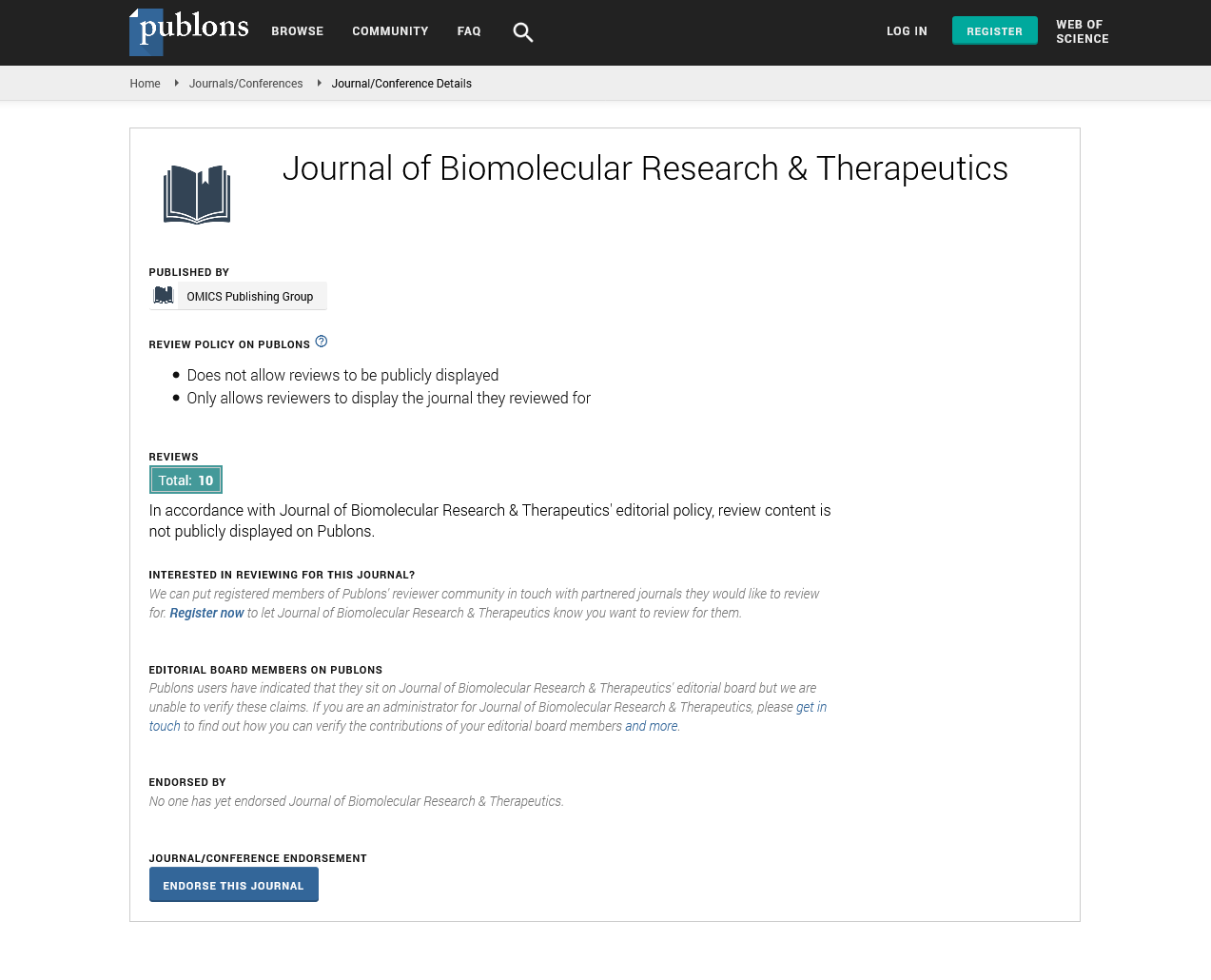Indexed In
- Open J Gate
- Genamics JournalSeek
- ResearchBible
- Electronic Journals Library
- RefSeek
- Hamdard University
- EBSCO A-Z
- OCLC- WorldCat
- SWB online catalog
- Virtual Library of Biology (vifabio)
- Publons
- Euro Pub
- Google Scholar
Useful Links
Share This Page
Journal Flyer

Open Access Journals
- Agri and Aquaculture
- Biochemistry
- Bioinformatics & Systems Biology
- Business & Management
- Chemistry
- Clinical Sciences
- Engineering
- Food & Nutrition
- General Science
- Genetics & Molecular Biology
- Immunology & Microbiology
- Medical Sciences
- Neuroscience & Psychology
- Nursing & Health Care
- Pharmaceutical Sciences
Jessie Dong
Department of Pharmacology, Roslyn High School and Old Westbury State University of New York, United States
Publications
-
Research Article
Improving Doxorubicin-Chemotherapy Treatment with Luteolin and Resveratrol: A Novel Synthetically Engineered Secondary Metabolite "TDB-13" Created with Luteolin and Resveratrol
Author(s): Jessie Dong*
First-line chemotherapy drug doxorubicin, the most potent chemotherapy drug to date, is used in virtually all chemotherapy treatment plans. 92% of cancer patients are treated with chemotherapy yet for the past six decades, chemotherapy has had a failure rate of 90%. An overwhelming majority of the failures are attributed to the side effects of doxorubicin. No existing treatment exists that mitigates doxorubicin’s repercussions without significantly depleting its therapeutic efficacy. While research indicates that secondary metabolites are improved when working with other chemicals/compounds and that luteolin and resveratrol specifically have protective effects on heart tissue (which could alleviate a major side effect: cardiotoxicity), no research has tested any secondary metabolites on any chemotherapy drug. To evaluate therapeutic efficacy: luteoli.. View more»

